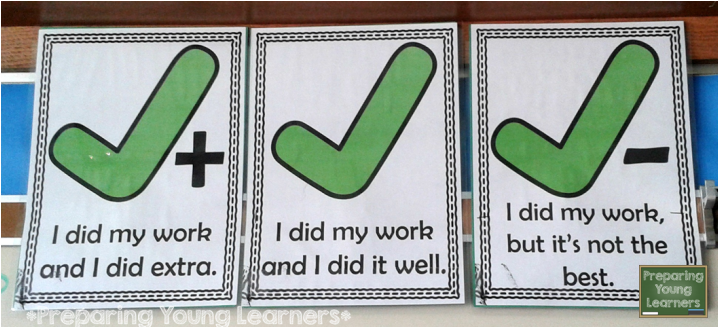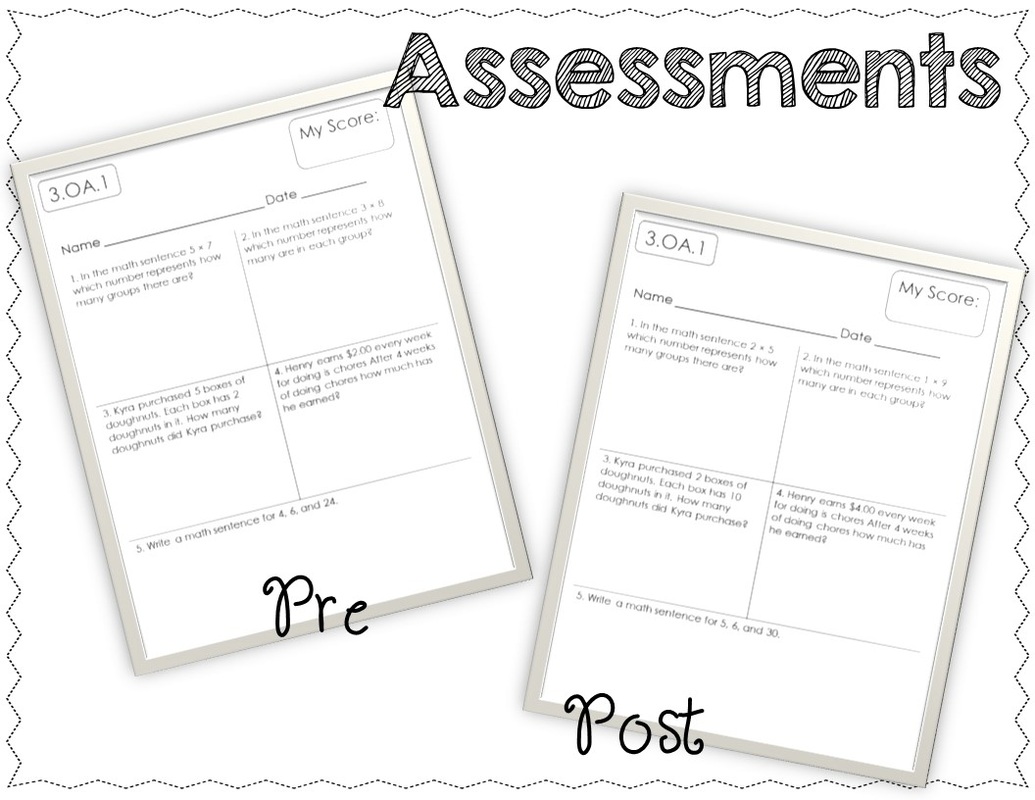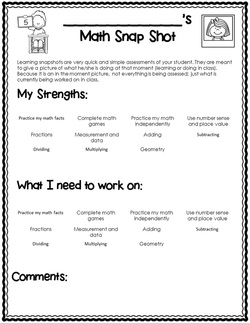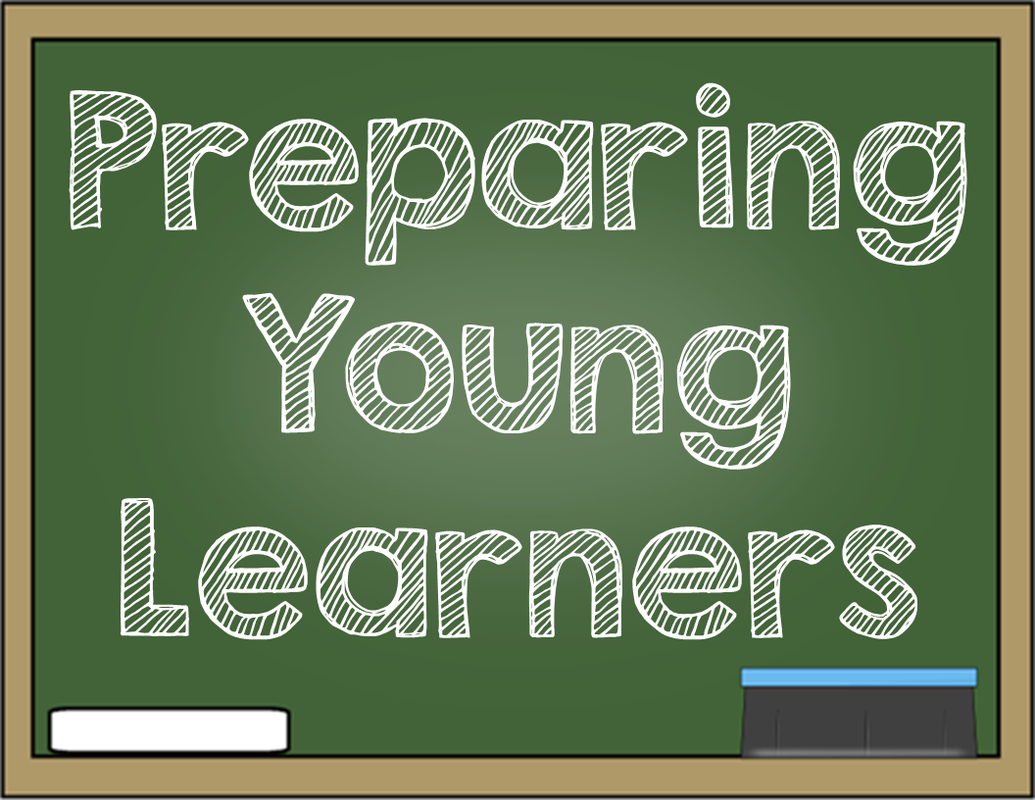
How do you do grading? Is it usually hours and hours of marking papers at home? It seems like the minute you get the pile lower, there is a whole other pile to add to it (or 2 or 3 more)!
Tim and I went to a great PD session a few years ago and we both had one of those Ah Ha moments! It truly was eye opening. The first thing we did was to list some of the assignments we give in class. Here are just some of the answers Tim and I had:
Then the presenter asked up the purpose of those assignments...what???? The one we really got tripped up on was the classwork and homework. Of course, everyone answered, that it is practice for the assessments.
This is were my mind was blown. He then said, so when you practice in sports for the big game (the assessment) does the coach grade every single thing you do at practice? Does he/she give you a report card after every single practice? Of course not, they don't have the time. The thought of that would be ridiculous. The coach is assessing you, just not necessarily ranking all of the players, every single minute.
So what did that have to do with teaching? The presenter then pointed out that if we think that is ridiculous in sports, why isn't it ridiculous in teaching? While this makes sense, what do I do with classwork if I don't grade everything?
Tim and I went to a great PD session a few years ago and we both had one of those Ah Ha moments! It truly was eye opening. The first thing we did was to list some of the assignments we give in class. Here are just some of the answers Tim and I had:
- Class work (practice work)
- Homework
- Quizzes (formative assessments)
- Tests and end of unit projects (summative assessments)
Then the presenter asked up the purpose of those assignments...what???? The one we really got tripped up on was the classwork and homework. Of course, everyone answered, that it is practice for the assessments.
This is were my mind was blown. He then said, so when you practice in sports for the big game (the assessment) does the coach grade every single thing you do at practice? Does he/she give you a report card after every single practice? Of course not, they don't have the time. The thought of that would be ridiculous. The coach is assessing you, just not necessarily ranking all of the players, every single minute.
So what did that have to do with teaching? The presenter then pointed out that if we think that is ridiculous in sports, why isn't it ridiculous in teaching? While this makes sense, what do I do with classwork if I don't grade everything?
Enter the concept of check, check minus, or check plus! The answer to every teacher's dreams!
A check minus is for students that do some work, but it's not done the best that they could. A check is for doing work and doing it well, and a check plus is for doing classwork and then also doing extra (extra is not always available, and we make sure the students know that).
This is only for classwork, or homework, or, what Tim and I call practice work. In class, some classwork can be used as an informal assessment, but that would be graded regularly, not with the check system. The graded work is what makes it into the grade books, not the practice work. It makes grading SO much easier and easier to see what the students actually know, not how well they or their friends can do a worksheet. When students did centers in my classroom, I used the check mark system, when they take notes in Tim's social studies class he uses the check mark system. The students feel as if they have been graded and Tim can see who has completed work. About 80% of our work in class is graded using the check mark system and the other 20% is using a traditional scale that has been set by our district.
What do parents think? After explaining the system and why it is used, parents usually love it. The check mark system really mirrors real life. I am not given an A, B, or C every time I complete a task at work. Sometimes, however, I am given a formal assessment (my evaluation) and my supervisor does take into count all of the work I've done for the last year (and these observations are really how many checks, check minuses, and check pluses the supervisor can remember from the whole year). It also really gives the students a chance to practice prior to grading them. Not all students are going to understand everything from the beginning. So, why shouldn't they get a chance to practice? I got a chance to practice and perfect my teaching before I had my first formal observation....
I know, it is a weird concept, but give it a week or a unit and you will NEVER go back to the old way of grading!
Want to try it? Get your own Check Mark Posters For Grading HERE and let me know how it is going!
A check minus is for students that do some work, but it's not done the best that they could. A check is for doing work and doing it well, and a check plus is for doing classwork and then also doing extra (extra is not always available, and we make sure the students know that).
This is only for classwork, or homework, or, what Tim and I call practice work. In class, some classwork can be used as an informal assessment, but that would be graded regularly, not with the check system. The graded work is what makes it into the grade books, not the practice work. It makes grading SO much easier and easier to see what the students actually know, not how well they or their friends can do a worksheet. When students did centers in my classroom, I used the check mark system, when they take notes in Tim's social studies class he uses the check mark system. The students feel as if they have been graded and Tim can see who has completed work. About 80% of our work in class is graded using the check mark system and the other 20% is using a traditional scale that has been set by our district.
What do parents think? After explaining the system and why it is used, parents usually love it. The check mark system really mirrors real life. I am not given an A, B, or C every time I complete a task at work. Sometimes, however, I am given a formal assessment (my evaluation) and my supervisor does take into count all of the work I've done for the last year (and these observations are really how many checks, check minuses, and check pluses the supervisor can remember from the whole year). It also really gives the students a chance to practice prior to grading them. Not all students are going to understand everything from the beginning. So, why shouldn't they get a chance to practice? I got a chance to practice and perfect my teaching before I had my first formal observation....
I know, it is a weird concept, but give it a week or a unit and you will NEVER go back to the old way of grading!
Want to try it? Get your own Check Mark Posters For Grading HERE and let me know how it is going!




 RSS Feed
RSS Feed


